
- Home
- India
- World
- Premium
- THE FEDERAL SPECIAL
- Analysis
- States
- Perspective
- Videos
- Sports
- Education
- Entertainment
- Elections
- Features
- Health
- Business
- Series
- In memoriam: Sheikh Mujibur Rahman
- Bishnoi's Men
- NEET TANGLE
- Economy Series
- Earth Day
- Kashmir’s Frozen Turbulence
- India@75
- The legend of Ramjanmabhoomi
- Liberalisation@30
- How to tame a dragon
- Celebrating biodiversity
- Farm Matters
- 50 days of solitude
- Bringing Migrants Home
- Budget 2020
- Jharkhand Votes
- The Federal Investigates
- The Federal Impact
- Vanishing Sand
- Gandhi @ 150
- Andhra Today
- Field report
- Operation Gulmarg
- Pandemic @1 Mn in India
- The Federal Year-End
- The Zero Year
- Science
- Brand studio
- Newsletter
- Elections 2024
- Events
- Home
- IndiaIndia
- World
- Analysis
- StatesStates
- PerspectivePerspective
- VideosVideos
- Sports
- Education
- Entertainment
- ElectionsElections
- Features
- Health
- BusinessBusiness
- Premium
- Loading...
Premium - Events
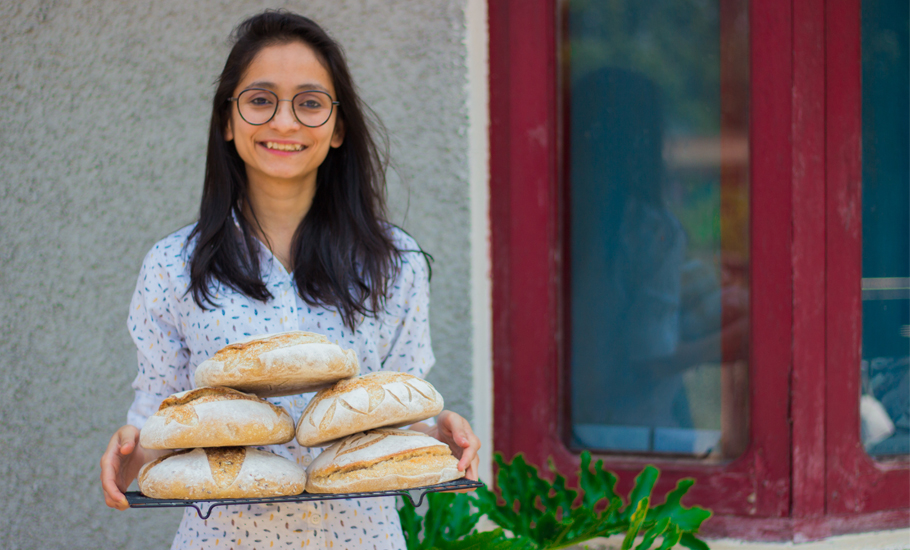
How bakers in the hills are curating perfect tastes with local ingredients and mantra of adaptability

In award-winning author Janice Pariat’s latest book Everything the Light Touches, Shai, one of the characters, living in the remote hills of Meghalaya, wishes to bake a cake for her ailing nanny named Oin. “The day before I leave, I want to bake a cake. Somehow, Grace has managed to text me the simplest recipe — plain cake — with instructions for how this can be made in a...
In award-winning author Janice Pariat’s latest book Everything the Light Touches, Shai, one of the characters, living in the remote hills of Meghalaya, wishes to bake a cake for her ailing nanny named Oin.
“The day before I leave, I want to bake a cake. Somehow, Grace has managed to text me the simplest recipe — plain cake — with instructions for how this can be made in a pressure cooker,” Shai says in the story.
But the remote village she lives in has only one shop at the far edge of the hills. The owner of the shop, Bah Albert, recounts the few ingredients that his tiny shop possesses. “Shini, moida, pylleng.” (Meaning sugar, flour and eggs).
Shai has milk at home but there is no way to source vanilla essence. Janice’s character is disheartened by the absence of an essential ingredient but not discouraged. The cake is ultimately baked with locally grown bay leaf for fragrance.
Hills call people. Sometimes people see no meaning in returning. They begin to inhabit the hills, expecting a life of humility and occasional indulgence.
A bite of cheesecake, freshly baked bread, a pie, tart or classic croissant—these may feel like absolute basics in the city with an overflow of commercial and home bake options—but thousands of kilometres above sea level, it’s an absolute delight.
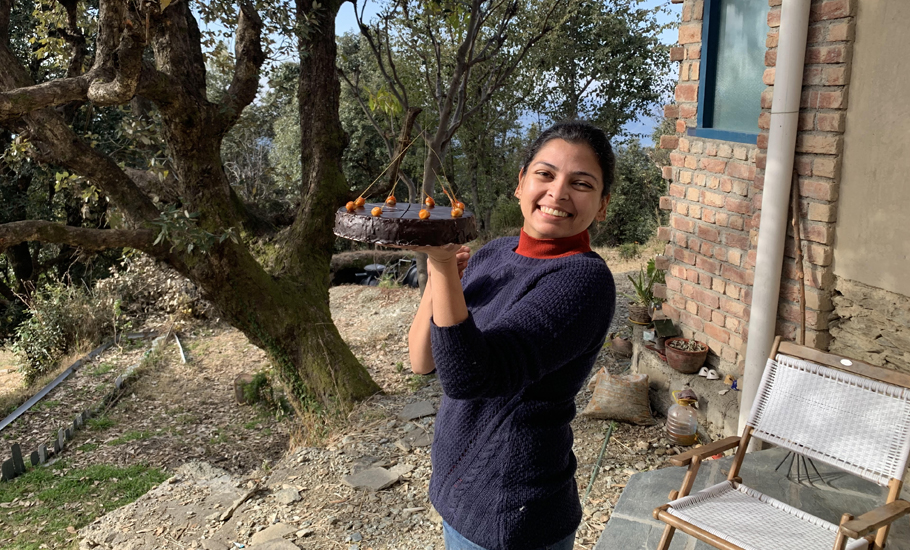
In the far above corners of Bari, a very small hamlet near Bir (the paragliding hub of India) in Himachal, Avni Rastogi and her husband are the only outside couple who have permanently moved to the village, having bid farewell to city life. Their beautiful semi-mud house designed by late German-American architect Didi contractor has been built with a few modern amenities. It overlooks the Kangra valley and Bir, with the Dauladhars to the north. Their home is one of Bari’s 10-12 homes.
“We moved to Bir in 2017 and completed the construction of our house just before the pandemic hit in 2020. I love baking, and during the lockdown, starting ‘BAkeRI’to bake from home and home-delivering our goods seemed like a natural progression. There was a market for that sort of thing,” states Rastogi who spent holidays of her childhood in her grandparents’ orchard near Nainital and baked for fun with her mom and sister while growing up.
Their small business called BAkeRI (punning on their village name Bari, also since popularly known as Bari ki bakery) caters to old residents who moved to Bir to live and work from hills.
Avni and her husband have bought a small piece of land for farming where they grow local fruits, vegetables, forage for mushrooms in nearby forests and wild greens. Most of these, upon the right season, make their way into the baked goods.
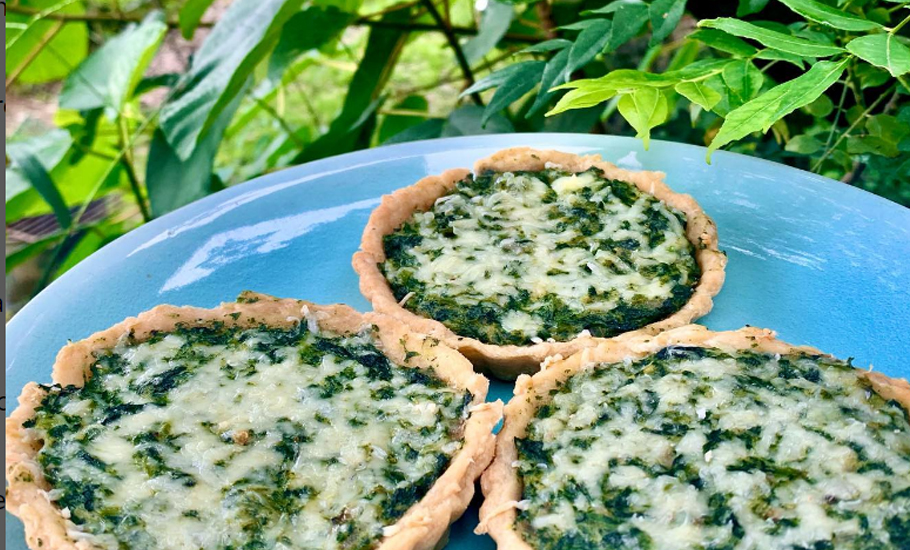
The list includes whole wheat breads, occasional jowar (sorghum flour) or kuttu/ogla (buckwheat flour) breads, Frangipane apple tarts, wild green Babka (made with locally foraged greens like Bichchu buti, Bibdu and Khokua), puffs, quiches, pies and cakes.
“Getting some ingredients like cocoa powder or cheese is a task but other than that I mostly source our raw materials from the local wholesaler or grocery store. Or else, friends and family visiting from Chandigarh offer to ride up with certain ingredients that aren’t locally available,” furthers Rastogi who sees no point in online shopping due to the packaging waste it creates.
A former action researcher with CEPT and IFMR, having worked on solid waste management projects, she is aware of the scars single-use disposables can leave in eco-sensitive areas.
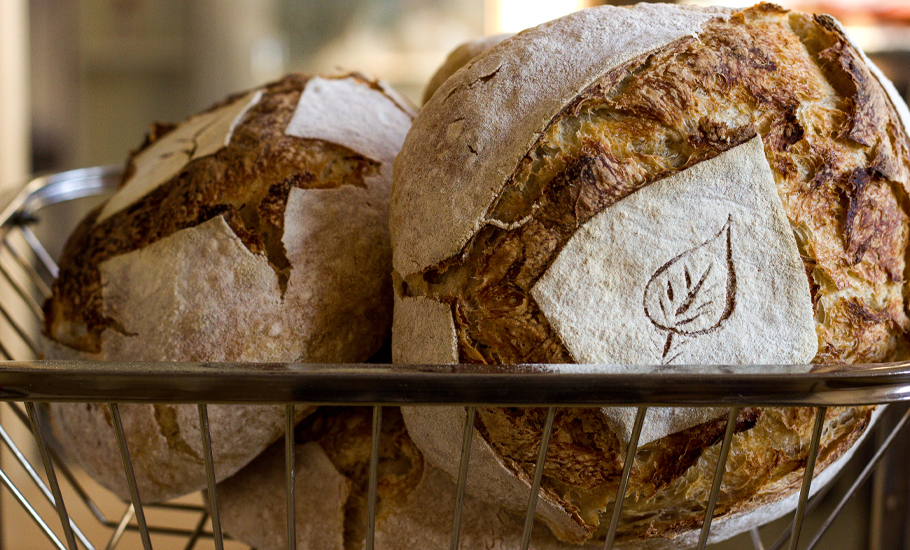
Ikigai, the Japanese concept behind living a fulfilling life, meets at the intersection of passion, mission, vocation and profession. In simpler words, an ideal life can be attained if people can find what they are good at, what they love, what the world needs and what they can be paid for.
Nidhi Thakur found her Ikigai as a baker in the hills after a career in PR in Mumbai. Her bakery and cafe called 1740 located in Rakkar village near lower Dharamsala has its roots scented in tales of barter during the pandemic.
“My menu has evolved with the needs of the locals living in the hills here. During the lockdown, some residents wanted fresh bread but there was none available. So, I started baking sourdough in my 18-litre Bajaj oven and supplying it to local families. In return, I’d often get fresh fruits or herbs from their garden. That went into baking focaccia on several occasions,” narrates Thakur who began with a humble home bakery setup.
“A friend from Israel once wanted to have a traditional Shabbat dinner which needed a special bread called Challah. I looked up the recipe online and baked it for the occasion,” she furthers on baking for the community.
Unlike big kitchens and bakeries in the cities, menus in the hills have to adapt to the seasons, local demand and be made fresh in small batches. So, typically, cold winters are all about hot chocolates and soups and the summer smells of kombuchas.
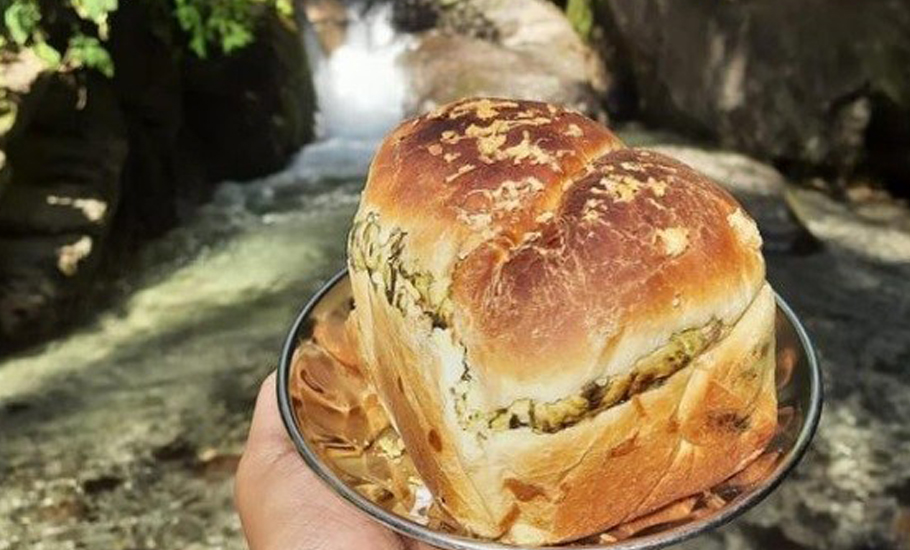
Living in the hills or remote corners comes with the realisation that not all foods may be practical all around the year.
For instance, a loaf of artisan bread may be a far-off reality in thick winters.
“It’s very difficult to ferment the dough in winters, it just wouldn’t rise. We have tried hacks in the past… keeping the dough near the heater, proofing breads inside a steamed oven etc., but we had no control over how long the process would take and that makes it difficult to fulfil orders. So, we have no choice but to discontinue certain enriched breads like brioche and babka in winters,” Thakur states.
She adds, “We have had to stop using fancy cheese because it meant daily rides to McLeodganj to source it which was tiring and impractical. That may mean slight deviation from authentic taste but local cheese was good enough.”
While gifts of nature during Spring are abundant, they often get stamped or swept in cities. In the hills, preserving flowers is as much a thing as preserving fruits.
Spring in the Himalayan hills is synonymous with Rhododendron (Buransh) blooms. Meenakshi Kapoor from Bhagsu village near McLeodganj likes to preserve the edible flowers in the form of jams and top it on tarts and cakes. Local fruits such as carrots, apples, pears, jamun (black plums) have added humble and seasonal flavours to her bakes in the past.
A freelance journalist, she finds joy in baking at ease and will; and not get caught up in the commercials. Her carrot cakes and cupcakes can be found at a local cafe and birthday cake orders from fellow residents are free-flowing.
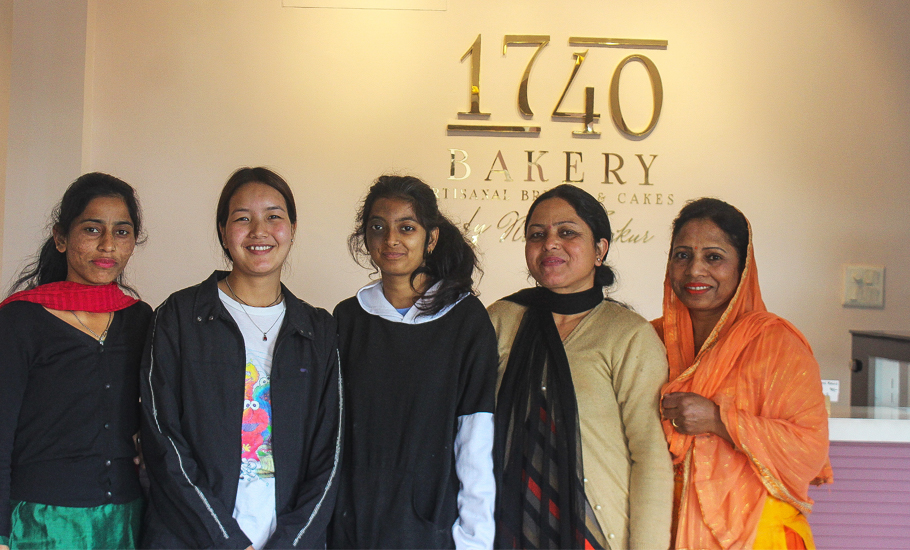
“Baking cakes for birthdays is fun yet nerve-wrecking… elaborate decoration and that sense of meeting expectations… I am a big critic of my own cakes and don’t deliver until I am satisfied with the outcome,” she shares. Unlike Shai, she is lucky to have a local supermarket that supplies most of what she needs to pursue baking.
